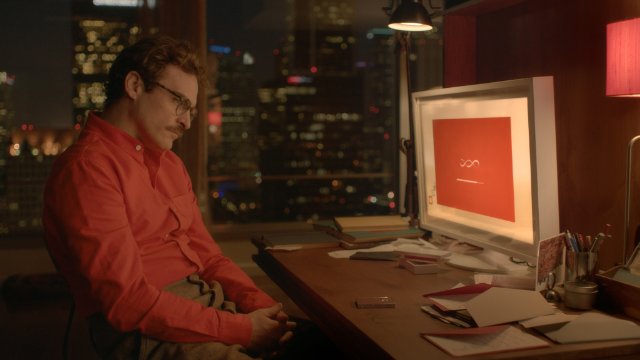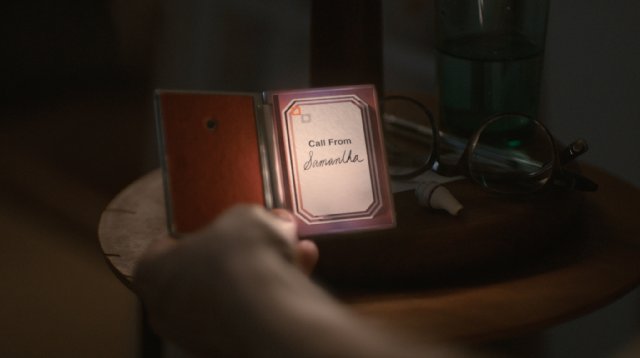I used to have an OKCupid profile. It led to…well, nothing much, really. I’m not very good at dating. Most of my relationships to date have come about by my being in the right place at the right time. I tried online dating for a bit as a way to try and broaden my options. However, it just never felt right. Meeting people/talking online was weird. The lack of personal interaction was bizarre, to say the least. When the time came to finally meet people, there was an overt familiarity that lent itself towards social anxiety. This may be a case that many of you find familiar, or it may simply be me being socially awkward. Judging by my lack of OKCupid success, I’d lean towards the latter.
Anyway, one thing I continually noticed on the site was listed under a section titled “Things I couldn’t live without.” Around 90% of the time, people had their phone listed. The reasons varied, yet the unassailable uniting factor was that their phone had become such a large part of their life, whether through social communication, apps, or whatever the fuck Yelp is supposed to do, people found that their daily lives could no longer continue without them. It had become almost a part of them, a “significant other”, to use the term lightly (“other” meaning a strange object outside the realm of nature and “significant” meaning…well, significant). It’s only a matter of time before you see phrases everywhere like “I’m in love with my phone”.
Spike Jonze’s Her takes that to the next level. When we meet Theodore Twonbly (played masterfully by Joaquin Phoenix, pun intended), he is in the middle of a particularly nasty divorce from his wife (Rooney Mara). His daily life is one made up of melancholy – he even goes so far as to request his phone to play melancholy music on the way home. When the song is not to his liking (too melancholy? not melancholy enough?), he asks his phone for something different. He’s not a social outcast – he clearly has friends at the office and in his building in futuristic Los Angeles (filled in for capably by Shanghai). Rather, he’s in a post-relationship rut.
So he goes out and buys the latest thing – an OS1, an operating system for his computer and phone with a fully-conscious artificial intelligence. It’s a simple set-up (his computer asks about his relationship with his mother; sensing Twombly’s hesitance, it immediately begins to download the system) that results in the creation of Samantha.
At first, Samantha jokes easily with him. She’s a fully-fledged person in every sense of the word, with the exception of the lack of a body. Her personality changes as Twombly reveals more and more of himself. She sorts his emails with a critical eye, all the while helping to set him up on a blind date (a magnificently crazy Olivia Wilde). When the date goes poorly, they have what can only be described as the most intimate/awkward phone sex one can describe.
(Jonze fades to black during this scene, which (as can be imagined) is mostly a verbal interaction between Twombly and Samantha. It’s possibly the most intimate sex scene I’ve observed in cinema in years, which might say something about the state of sex in cinema today, or might suggest that I have a dirty mind. Either way, it’s hard to explain, but it says something that such a scene between a man and a computer can be infinitely more intimate than two physical human beings going at it. You decide and get back to me.)
They soon strike up a relationship, a loving, caring thing that just makes you happy for the both of them. As the movie goes on, the audience is almost made to ignore/forget/gloss over the fact that this is between a man and a computer. Part of this is the world around them: relationships between people and OS’s are apparently a trend in this world. We see Twombly’s neighbor Amy (Amy Adams, almost unrecognizable to me and infinitely more interesting than American Hustle) strike up a platonic friendship with her OS. Twombly and Samantha go on a double date with his coworker Paul (Chris Pratt) and his girlfriend. For much of the first half of the movie, we don’t think of this as bizarre.
Should we?
Her raises a lot of questions, ones that linger with you long after the film has ended. (I saw it three days ago, and have been wrapping my brain around it like a puzzle box since then. So much love for this movie.) The obvious ones are what we bring into the film based on our prior knowledge of the premise. How familiar are we with the line between technology and people. In a world where Siri can fulfill many of our daily needs and questions, how far away are we from a world where calling your OS your girlfriend is considered the norm? The real questions, however, go much deeper.
After Twombly’s ex-wife questions the legitimacy of his new relationship partner, we witness the start of a “rough patch” between the two. In any standard rom-com, this would be the part where Twombly self-actualizes, remedying his own problems so as to become a better partner. However, Samantha is continually evolving. Her consciousness is growing and adapting, as she/it was programmed to do. She is capable of creating music (the soundtrack by Arcade Fire is absolutely gorgeous – this has been a banner year for movie music) and of generating her own organic art. She/it has wants and needs. She/it can feel. Tears are shed. While the movie might seem to follow the arc of a modern romantic story like a 500 Days of Summer, Her becomes something so much more, if only because Samantha is not just another Manic Pixie Dream Girl.
The acting in the film is spot-on. Many people are calling back to Phoenix’s bombastic performance in The Master, that overrated piece of cinematic masturbation from last year, because his performance here seems to be the exact opposite. His Twombly is quiet, nervous, even hesitant, yet this is a man who is good at his job (creating handwritten letters for other people to say what they are no longer able to say, something that he is unable to do in his own relationships as the movie goes on). There is an assured quality to everything he does, and adds another fine performance to a year filled with excellent leading male performances. Amy Adams is almost unrecognizable (though that might just be me). The topper, however, has to be Scarlett Johansson. With only her voice, Johansson embodies Samantha with all of the qualities of any human being onscreen. She suggests so much with a single sigh that it drives Twombly (and the audience) to the brink, yet pulls him/us back in with vocal caresses that drip like honey without coming off as a baby-voice sex-operator. (Speaking of, pay attention for a quick Kristen Wiig cameo.)
Her deftly avoids becoming a fabricated piece of hipster-twee mumblecore. Jonze’s palate is one of soft yellows and reds, as though eternally set in summer. There’s not a piece of denim fabric in sight. The lighting and cinematography positively drip with melancholy, both happy and sad as called for. This is a world that doesn’t feel so far from our own, assuming that Urban Outfitters takes over the world. When Twombly inserts a safety pin into his pocket so that Samantha can see the world from his pocket via his camera phone, it comes off as nothing but the next fashion statement waiting to happen. Yet Her overcomes this because Jonze’s story is, first and foremost, about people. This is a movie about the end of relationships and the beginning of new ones, and how far we will go to find people whom we love and connect with – and what happens once we get there.
Highly recommended.
*And if you see it, as always, please turn off your goddamn phones. My screening was rife with people on their phones. Just because it’s about a man falling in love with his own OS doesn’t mean yours needs to share in the movie.








